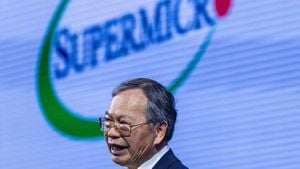Commodities trader Trafigura has entered the spotlight as it faces trial in Switzerland over serious allegations of bribing officials to secure lucrative oil contracts in Angola. This marks the first time Switzerland's high court will handle corporate liability for foreign bribery, setting the stage for potential changes in how multinational companies can be prosecuted for such actions.
The trial commenced at the Swiss federal criminal court located in Bellinzona, with proceedings expected to extend until December 20, possibly spilling over to January. Accusations suggest the company, alongside its former top executive Mike Wainwright and three others, participated in schemes involving upwards of $5 million allocated to grease the wheels for oil and shipping contracts with Angola's state oil company.
The focus will not only be on the financial transactions but also on the broader implications concerning corporate compliance and ethical practices across the commodities trading industry. Trafigura has consistently pressed its intent to challenge the allegations, asserting its compliance measures during the relevant time.
Prosecutors have highlighted significant returns from these purported bribes, with profits from the controversial deals reportedly reaching around $143.7 million. If found guilty, Trafigura could face hefty fines amounting to millions of Swiss francs, and the individuals involved could face up to five years behind bars.
This case has shone a light on corruption allegations surrounding the commodities sector, with Trafigura not alone under scrutiny. Major players including Glencore, another Swiss commodities giant, have also faced accusations of misconduct, driving calls for thorough investigation and reform within the industry. Trafigura itself, which boasts over 12,000 employees globally and operates across the oil, gas, metals, and mining verticals, has ramped up efforts to fortify its compliance systems, underscoring the weight of operating with integrity.
Backtracking to the initiation of the case, Swiss federal prosecutors indicted Trafigura and its associates last December for their roles within this bribery scheme, which allegedly stretched from 2009 to 2011. During this period, payments made to the Angolan official totaled more than €4.3 million and around $604,000, raising eyebrows about the ethical operations within the trading scene.
Trafigura has publicly asserted its presumption of innocence, and as the trial progresses, observers will be watching closely not just for the immediate outcomes but also how this case may shape future regulatory landscapes pertaining to corporate business practices.
The wider ramifications of this trial stretch beyond the walls of the courtroom and serve as cautionary tales for many corporations about the necessity of transparent and ethical operations. Trafigura's positioning, alongside the accusations, exemplifies the ever-surfacing tensions and challenges within the commodities trading industry, particularly concerning dealings with governments around the globe.
Should the trial yield convictions, it could send strong signals throughout the industry and encourage other companies to reevaluate their internal compliance policies. With the public and governmental watchdogs increasing their scrutiny on corporate governance, this situation poses pressing questions surrounding accountability at the upper echelons of multinational corporations.
Analyzing this case's potential outcomes, it highlights the dire need for the adherence to international anti-corruption laws and reinforces the Czech Republic framework of fostering greater responsibilities within commercial entity operations. Stakeholders monitoring the trial will also be considering how judgments can reshape the relationship dynamics between corporations and government officials, ensuring trustworthiness remains at the forefront of global business ethics.
Many industry analysts speculate the trial could have cascading effects on how other commodity traders operate, leading to stronger enforcement of lawful practices and potentially quelling corruption tendencies. The intersections of trade, ethics, and law are being continuously examined, with this trial representing just one of many benchmarks on the road to enhancing corporate accountability.



